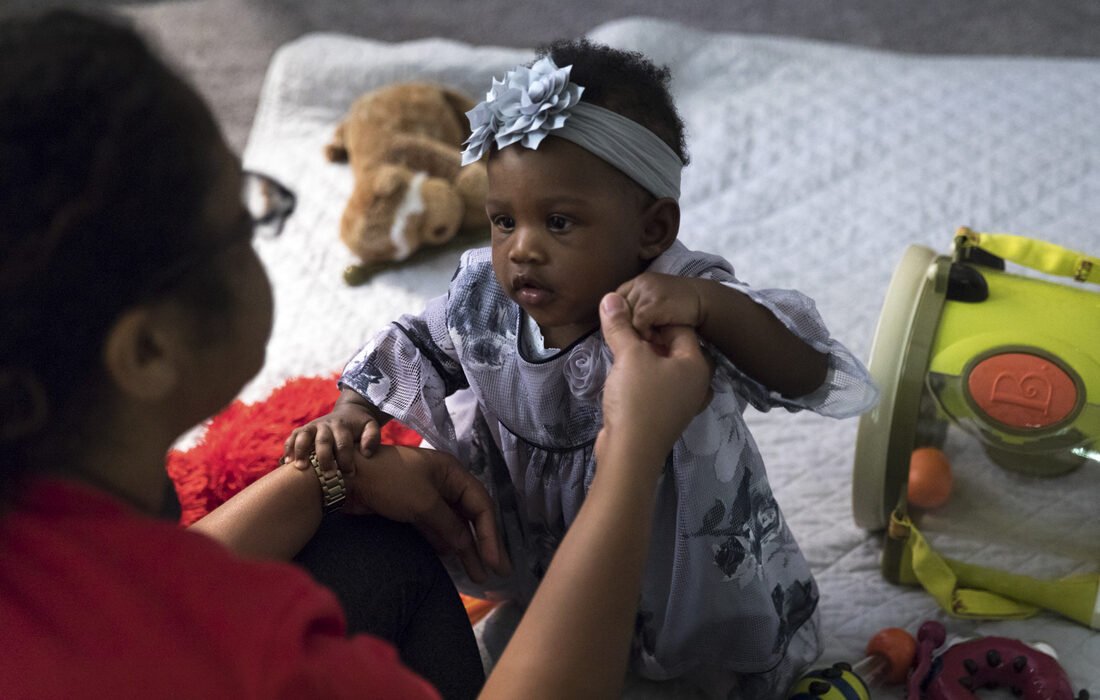Indiana, USA – In the heart of the nation, a distressing reality unfolds as the maternal mortality crisis in Indiana takes a devastating toll, particularly on the lives of Black mothers. The state holds the unenviable position of having the third-highest maternal mortality rate in the country, a grave concern compounded by the glaring racial disparities revealed in recent data.
According to the Indiana Public Policy Institute, the maternal mortality rate, a measure of maternal deaths per 100,000 live births during or within one year, underscores the urgency of the issue. A closer examination of the statistics reveals a distressing reality: Black women in Indiana are experiencing maternal mortality at an alarming rate, eclipsing their white counterparts.
The national landscape mirrors this disparity, with the CDC reporting a sharp increase in the maternal mortality rate from 23.8 in 2020 to 32.9 deaths per 100,000 live births in 2021. Shockingly, Black women face maternal mortality rates approximately three times higher than those for white women, registering at 69.9 per 100,000 live births in 2021.
The Indiana Maternal Mortality Committee’s 2022 report is a stark testament to the severity of the situation. It reveals that a staggering 79% of pregnancy-associated deaths in 2020 were preventable. Further, data from 2018 to 2020 highlights a disturbing trend: Black women experience the highest number of pregnancy-associated deaths, with a ratio of 128.8 deaths per 100,000 births. This is an alarming 93% higher compared to their white counterparts.
Addressing this crisis demands immediate and comprehensive action. Recognizing the benefits of doula care, a 2019 legislative stride allowed Medicaid coverage for doulas in Indiana. However, it’s imperative to expand this coverage and secure funding for doulas, ensuring their accessibility to a broader spectrum of mothers.
Maternal health deserts persist in Indiana, with one in four counties lacking adequate maternity care. By extending OB/GYN care statewide, constructing healthcare facilities, and implementing expanded telehealth programs, we can make substantial strides in improving maternal health outcomes.
The critical importance of diversity in healthcare cannot be overstated. Increasing the number of Black OB/GYNs is pivotal in countering racial bias and ensuring culturally competent care. Historically rooted in medical abuse, systemic racism has perpetuated misconceptions and biases against Black women. Consequently, fostering a diverse healthcare workforce is not only an ethical imperative but also a strategic move to dismantle ingrained biases.
Recent pledges from leaders at Community Health Network, Eskenazi Health, and Indiana University Health to combat health inequities are commendable. However, the focus should extend beyond boardrooms to the recruitment of diverse healthcare professionals on the front lines. To attract and retain Black professionals, efforts must be intensified to eradicate workplace racism through direct and impactful measures.
The time to act is now. Black mothers should not be succumbing to maternal mortality at such an alarming rate. Immediate implementation of widespread healthcare access, targeted efforts to eliminate racial bias, and robust support for doulas are essential steps to reverse Indiana’s unacceptable maternal mortality rates.
State Rep. Vanessa Summers, a Democrat representing Indianapolis, fervently advocates for transformative solutions to safeguard the lives of Black mothers in Indiana.

